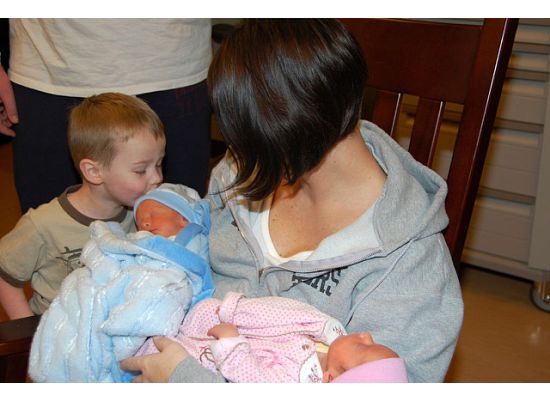My family is very diverse. Within my family we are blessed to have differing religions, races, political affiliations, sexual orientations, and varying abilities. My family is very honest with each other. I think that it is important to treat others with respect. For example, I like to learn about other cultures. My professional background is in special education. I also have a child with special needs. I have noticed that many people treat him very differently. He has white matter loss in his brain, developmental delay, speech issues, and has a slower processing speed. However, when some people talk to him they speak very loudly and slowly to him. His hearing is fine. However, personally I have noticed that I use more hand gestures with him and we use many signs. He responds well with multiple forms of communication. I also used signs and varying forms of communication while teaching special education as well.
As for other forms of differences, I try to be open-minded and accepting. I respect the differences in others. I think that it is important as a teacher, to learn about personal families and not base your judgement on a generalizations. For example, I have two brother-in-laws. One is African-American and one is Caucasian. When people see a photo of Stan (my sister's husband; he is African-American), they ask if we get along. I love Stan. He is an awesome brother-in-law, father to my niece and nephews, husband to my sister, and person. He watched my oldest son while I taught the first year after he was born. Not many men would do that. He is great with my kids. However, I have never been asked if I get along with my husband's brother (who is Caucasian).
I do think that I communicate differently when I speak to adults versus children. I am much more quiet when talking with adults. I tend to not speak as openly with adults. I enjoy working with kids and like to listen to them, help them gain skills, and gain life experiences. I also enjoy working with older individuals. I like to learn from them. However, I have noticed that I often use signs with them too. I am not sure why, but I think is is a subconscious gesture.
I enjoy differences! My oldest son, Noah, began to like the band KISS from watching Scooby-Doo. Noah loves music. My husband and I only knew the populat songs by that band, but Noah wanted to go to a concert. We took him to the State Fair (a kid friendly venue) to see KISS. I would say that I misjudged the other concert-goers. It made me realize that just because you listen to a certain type of music does not mean much about your personality or home life!
- Do you find yourself communicating differently with people from different groups and cultures?
- If yes, in what ways do you communicate differently?


Your son is very lucky to have such a perceptive mom. Like you I also communicate quite differently with each of the children in my care. I also believe it is something I do automatically. I just seem to understand, somehow, when it is is beneficial to use my hands more when I am talking or not. I often find myself trying to switch modes though throughout the day as I communicate with so many different individuals. It can be funny at times. Thank goodness the parents I work with have a sense of humor. :) Great post!
ReplyDelete